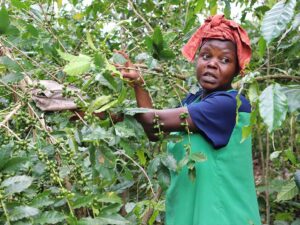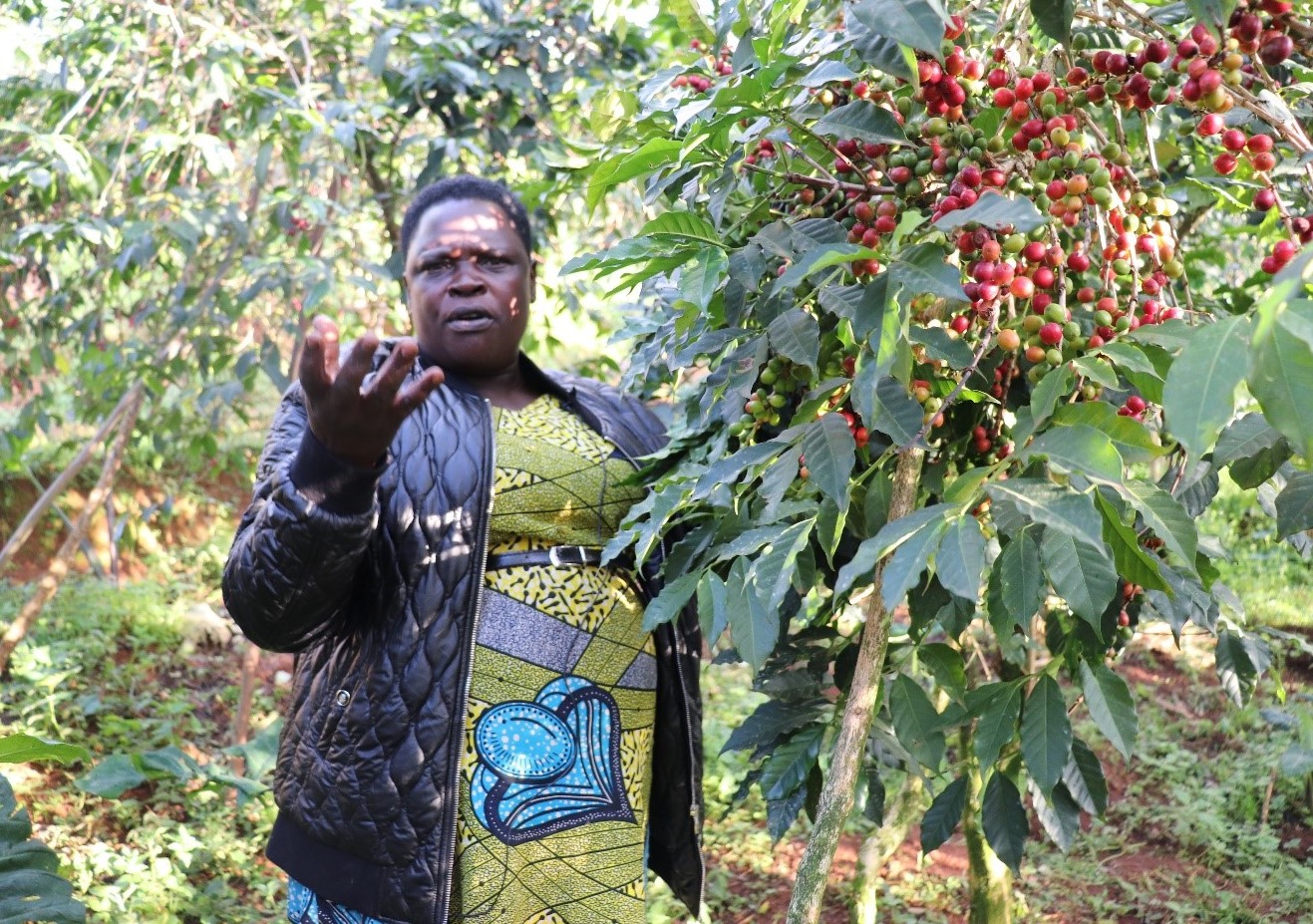
In the heart of Namanyonyi and Bunabudde sub-counties, a transformative narrative unfolds as the Food Rights Alliance (FRA), in collaboration with the Commonwealth Foundation, orchestrates a captivating chapter of the ReCoP Project (Building Resilience of Women in the Coffee Value Chain Project) organised a capacity-building session on Movement building, advocacy, and negotiation from the 11th to the 12th of December, 2023.
This initiative stands as a beacon, illuminating the path towards inclusivity and resilience of the food system that fosters the participation of all actors in decision-making. The training sessions saw an enthusiastic participation of 115 individuals, with a notable majority of 110 females and 5 males. Among the participants were representatives from various groups and coffee cooperatives, including the Bunabudde Coffee Cooperative, Women Wonder Cooperative Enterprise, Namanyonyi Youth Shalom Association, Bakusekamaja Women Group, and Kamukamu Women Saving who excitedly share a common goal gathering under the open sky, ready to learn together and share experiences in the coffee value chain to collectively advocate, negotiate, and influence more equitable business and policy decisions within the coffee value chain.
The optimism in the air during the training session on the slopes of Mt. Elgon in Bunabude is palpable. Women, fueled by passion, see this capacity-building opportunity not merely as an event but as a portal to introspection. Together, they delve into the intricacies of the challenges that beset them, exploring the roots and weaving solutions with threads of hope. The Chairperson of Bunabudde Coffee Cooperative Sarah Sambazi Jennifer Expressed gratitude for the initiative, recognising the lack of knowledge and skills among women in advocating for fair prices for their coffee. ‘The gender disparity in labour during fieldwork and post-harvest handling, with women undertaking the majority of the work, women provide 58% of the labour during fieldwork and 72% of the labour during post-harvest handling but still don’t enjoy the products, they face exploitative pricing from the middlemen’. The quality of coffee beans produced by women was acknowledged emphasising the need for training sessions to empower them to advocate for their fair treatment and recognition of their contribution. She added that ‘those determining coffee prices often lack awareness of the various activities involved, such as nursery work, transplanting, weeding, and harvesting and therefore small-scale female farmers deserve higher prices for their coffee, reflecting the value of the activities they undertake to enhance their livelihoods.

Gladys Nawire raised concerns about pests affecting pests “Women plantations are affected with wild rats due to weeds which women don’t remove. Women lack knowledge on coffee handling due to neglect from the agriculture extension workers” She highly recommended training women on sustainable farming. Kainza Esther voiced out the deep concern of women’s participation and contribution towards significant choices at home yet they provide the most labor on the plantation. limited influence in decision-making processes. She highlighted that women provide free labour at home but yet still marginalised. Women have no say in the money given out in government programs like PDM, husbands spend the money on mobile smartphones. Instead, of spending it on farming inputs like pulping machines, shade nets and protecting gears for their health. Women collectively voiced a shared concern about the substandard quality of their seedlings and cherries, a factor that significantly impacts the market value of their coffee which is sometimes distributed by the local government thus hindering their competition on the market.
The mission extends beyond training, moving into a broader landscape of community mobilization, empowerment, and the construction of a formidable movement. Cooperatives like have facilitated networking and collaborations, enabling women to sell their coffee collectively at higher prices. Nakayenji Patience, a member of Bunabudde Coffee Society shared her experience before and after joining a cooperative, “Bunabudde society has collaborated with other coffee producers and buyers in other regions and we have been able to sell our coffee as a group not as an individual at a much higher price compared to selling as an individual’. She added that cooperatives have enabled them to engage with various Partners, and civil societies like the Food Rights Alliance offer training to the Women coffee farming groups. Members emphasized that Cooperatives have provided security to women in the coffee value chain by safeguarding them from exploitation by middlemen. Through collective strength, cooperatives have empowered women to negotiate fair prices for their coffee produce, ensuring they receive just compensation for their efforts. she further highlighted that although women tend to have less land and few coffee plantations, since joining cooperatives women have tended to increase their coffee from the application of what is can learn from training by several partners.
Agnes Nafuna stated “Cooperative has offered the advantage of receiving second payments as a group, this collective benefit has enhanced the financial well-being of the members, providing additional income that can be reinvested into coffee or used for various family and community needs.’
While training lays the foundation, challenges persist. Inconsistent follow-ups by the partners hinder the application of knowledge, and limited engagement of men in women’s programs affects decision-making since women have to seek permission from men to apply the knowledge learnt from the training.
Nonetheless, every shared insight, collaborative solution, and empowered women propels the journey forward.
In this symphony of voices, FRA acts as the maestro, skillfully documenting the narratives and aspirations of these women. Their stories, captured in voices and documentaries, become a powerful instrument for advocacy. FRA envisions these tales resonating through the corridors of change, amplifying the collective strength of women in the coffee sector.
By Amanya Julian
Program Assistant, Women in Agri FOOD Systems
